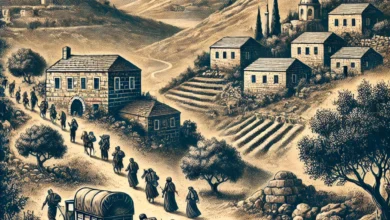Kassem Hejeij and the Stories Behind Jabal Amel’s Proverbs

“Cackle for them, Little Hen, and let’s hope they’re not dead!”
This old proverb was used in Jabal Amel to encourage people not to lose hope and to persevere, no matter how challenging the situation seemed.
Historian Kassem Hejeij, when asked about the origins and meaning of this saying, shared the following story:
“A rural woman gathered six of her hens in a burlap sack, tightly tied it, and walked to the market to sell them. After a long and exhausting journey under the sun, she opened the sack to find the hens motionless, piled on top of each other. She tried to separate and revive them but to no avail. Disheartened, she clapped her hands and lamented her misfortune, as she had planned to buy essential household items with the money. Suddenly, one hen sprang to life, jumped out of the sack, and started cackling loudly. Overjoyed, the woman called out to the hen: ‘Cackle for them, little hen, and let’s hope they’re not dead!'”
Hejeij added:
“The term ‘little hen’ refers to a small, tailless chicken. In the past, chickens played a significant role in women’s lives. They relied on chicken meat, eggs, and even feathers for economic and domestic purposes, with eggs being a form of currency in villages. Women would even talk to their chickens as if they were friends, inventing unique ways to communicate with them.
Chickens also helped women mend relationships with their husbands. To apologize or motivate their husbands, women would cook a hearty chicken meal, often with bulgur or wheat. Slaughtering a chicken was an acceptable act for women, unlike larger animals, which they weren’t allowed to slaughter or handle.”



